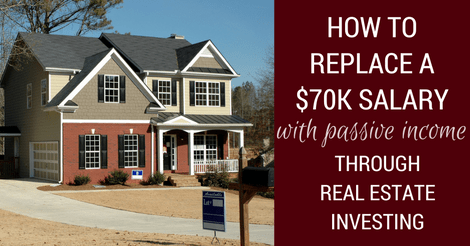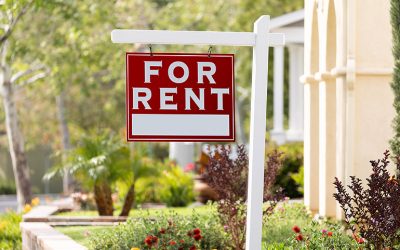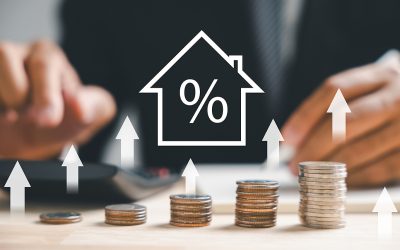
Real estate can be a difficult career to work with and in. That’s why I never encourage investors to become real estate agents. Would you want to spend your weekends putting out cookies at open houses while your family sleeps in? Of course not. Instead, the best way to build wealth in real estate is to buy and hold cash-flowing rental properties.
There are five main ways to build wealth in real estate:
- Cash flow
- Appreciation
- Equity
- Tax benefits through depreciation
- Hedge against inflation
Understanding both the real estate market as well as how to invest in it can create such a lasting impact on you financially. With a couple of ways on how to build up that wealth, you will be able to go from zero to one hundred in no time.
How Do You Build Wealth In Real Estate?
The most common way to build wealth in real estate is to understand the market flow of your neighborhood, comparing them to other neighborhoods, and from there, see if there is an investment to look forward to. Sometimes, especially after the events of the recession back in 2008-09, the real estate market can become somewhat of a frustrating workplace to deal with, as there can be some high prices and low profits depending on the county and state you live in.
However, despite these frustrations, here are a few key ways to build up your wealth through the real estate market that can help you invest and build that wealth both short term or long term.
Cash Flow
Cash flow typically means the money that is often leftover after the expenses are paid. Be it from the rent that was collected to other needs that were to be taken care of for the property at large, once these expenses are dealt with, the additional money is yours to keep (and invest in more properties). In many of our rental markets we can increase rents every few years.
However, cash flow isn’t always as stagnant as it can be.
There can be times where the cash flow has an increase, but also a decrease if there’s a decline in demand or value. That’s why we only like to invest in expanding or appreciating markets to avoid decreases in rent. For instance our new construction properties we’re building in Texas are in neighborhoods with incredible demand for housing. See for yourself.
Appreciation
Unlike cash flow, appreciation is the gradual increase of value over a specific period of time. Whereas some properties can increase or decrease in value, often causing you more headaches than you can count, appreciation doesn’t rely heavily on the property’s overall price value but that of its real estate.
While I’m more interested in cash-flow, appreciation is a powerful hedge against inflation. Perhaps you’ve seen how the federal government can print money like, well, you know. That means everyday the value of a dollar is going down thanks to inflation, while the value of real estate goes up. It’s why I like to say, “savers are losers.” When you put $1 in the bank at a paltry .01% interest rate and the inflation rate is 2% you are losing money. But if instead you put that $1 into an appreciating piece of real estate you’re coming out smelling like roses. You’re a hedge against inflation.
Leverage
Speaking of leverage, what leverage does is that it creates an economic flow system between the bank, the tenant who rents or buys the property, and the real estate agent who introduced the tenant to the property.
Think of it like this: you decide to get money from the bank to buy a cash-flowing rental property. You brought a 25% downpayment to the closing table and the bank brought 75%. You get all the glory here. You get the cash-flow, the tax benefits, the appreciation, and the list goes on. The bank only gets your monthly payment. Using other people’s money is a powerful way to build wealth. And interest rates have never been lower!
Depreciation
Though it sounds quite negative, depreciation is quite the opposite.
With depreciation, it writes off some parts of the property’s assets on a yearly basis. This helps with any possible tax burdens and can give you far more reasons to build up your wealth in real estate properties. Of course, like all tax-related issues and/or situations, it is best to consult with professionals on the matter in order to see how much cash flow you will receive from that specific year.
The reason why there is much of consultation involved in depreciation is due to how there is a general knowledge between the government that the property can wear down over time, allowing for expenses to kick in for replacements and updates, which can be written off as well.
There is one downside to this investment strategy: it doesn’t apply to primary residences, so if you are having a property being rented and having an income through there, it is best to have it aside and now be categorized as a primary residence otherwise the tax benefits will not apply.
Another powerful tool in the depreciation game is called cost segregation. It’s like the ultimate ninja trick for building wealth in real estate. Check out this deep dive video on cost segregation.
Loan Pay Down
Typically this method requires that you take a loan from the bank and have it paid off from the rent money that the tenants pay in a given property. This allows some room to breathe and investments to flow in nicely as well as passively, but it is one that can be complicated to deal with.
The reason as to why it is complicated to deal with is mainly because of where the payments are going. Sometimes they are paying back the interest of the loan and not the principle, so it may take some time for the interest to be paid off and then the principal to be paid.
Normally this is when a loan is being paid out in its beginning phase and once that phase is over, the passive income begins to increase as the payments are being done through the money of the tenants residing or using the property, giving you more of a running profit to yourself without doing much work in the process.
Forced Equities
If you are a fan of the Property Brothers, then you have somewhat of an understanding of what forced equity is. What forced equity does in terms of investing, however, is that unlike appreciation where it is up for the market to increase the real estate value, you have the ability to increase its value through home improvements (see what we did there?).
Forced equity is a method often used when buying fixer-upper properties, which are properties that are usually in the wreckage and are salvaged in order to increase its real estate and price value. With that said, it if you, the investor, that can provide the tools and expenses to increase the property’s value either through buying new appliances, updating the property’s features such as electricity and water, and even add major improvements and additions such as extra bedrooms if it’s a house.
With forced equity, the investment property is in your hands, and there is no need for luck but rather good choices and decisions to make while investing the fixer-upper and turning it into a grand investment.
Ready To Build Passive Income Through Rental Real Estate?
Ready to talk about your goals? We're here to show you the tools and teach you the process to begin earning legacy wealth for you and your family.









